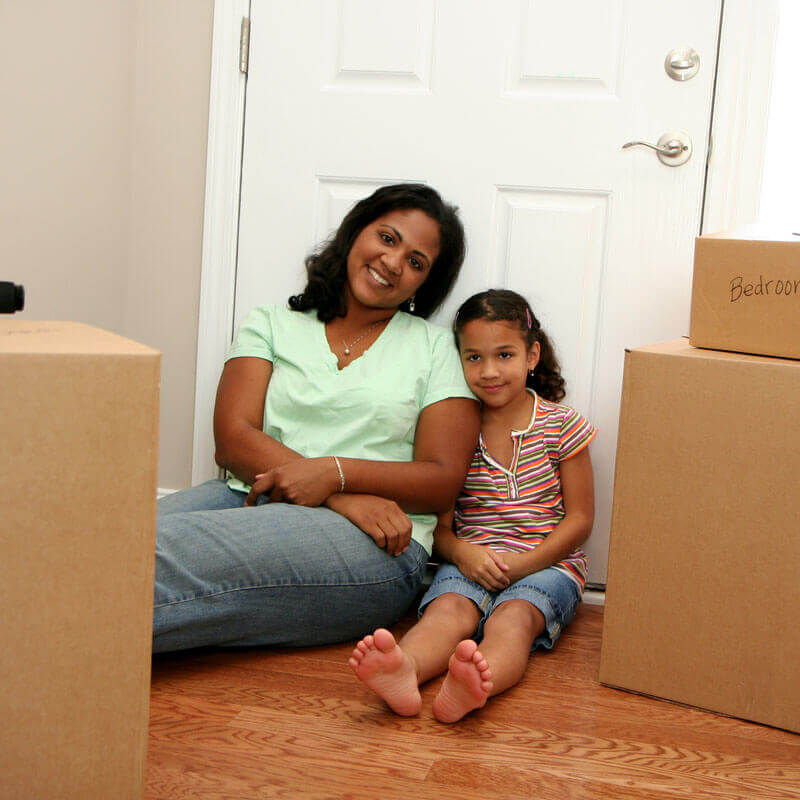Relocating to Texas? Here are three things that are unique when you move to Texas, plus tips from relocation experts and our free moving checklist.
3 Unique Things About Relocating to Texas
Here are 3 things that are unique about relocating to Texas.
Texas Drivers License
New Texas residents can legally drive with a valid, unexpired driver license from another U.S. state, U.S. territory, Canadian province, or qualifying country for up to 90 days after moving to Texas.
You must apply for a Texas license in person at any driver license office to continue to drive legally.
Texas Vehicle Registration
You must register your car in Texas within 30 days after moving to the state. And, you must obtain a vehicle inspection and insurance prior to registering your car.
You can find more information on the registration process at the Texas Department of Motor Vehicles website.
Turning on Electricity in New Home
On your first day in your new home, you’ll need electricity!
Over 87% of consumers in Texas live where there’s electricity deregulation, which means a choice of electricity providers.
There are 40+ suppliers to choose from, which is where we come in. Read our primer on shopping for an electricity company, or check out our resource on moving to Texas. Just enter your zip code below to shop for the best electricity plan for your home:
It’s actually pretty simple.
- Just enter your zip code below, select “Basic Fixed Rate” electricity plans and sort by price, low to high.
- Choose the lowest priced electricity plan you can find.
- During enrollment, select “starting service in my name” or “moving into new home.” You’ll be able to select the start date for your electricity service.
Schedule your electricity to start the day before you move in. Since the electricity provider can’t guarantee what time your lights will be turned, this ensures you have lights on during your move.
If you forget to set up service, you can get same day electricity Monday through Saturday in Texas.
And if you’re moving to an apartment in Texas, you’ll need proof that you’ve set up electricity service. Find out more about apartment electricity in Texas.
Once you’ve set up your electricity, don’t forget your other utilities!
Relocating to Texas? Shop Electricity Plans by Zip Code
Download Your Free Moving to Texas Checklist
Get the free checklist plus monthly energy saving tips delivered to your inbox.
"*" indicates required fields
Top 10 Moving Tips from Relocation Experts
We talked to relocation experts across the country for these top 10 tips:
Use this free Moving Checklist download to make things even easier.
- Downsize your move by selling what you don’t need. Don’t move something only to throw it out during unpacking.
- Schedule your move to avoid peak moving days. Scheduling on a weekday can save you money.
- Avoid online rental scams by doing your research. If it’s too good a deal to be true, it probably is.
- Get multiple quotes to get the cheapest moving company. Just make sure you are comparing apples to apples, and understand what’s included in each quote.
- Pack a bag for day one. Include what you would need for a night at a hotel, with one bag per family member. Keep all the essentials in a duffel or suitcase separate from your moving boxes. This ensures you’ll have what you need if your truck gets held up or you’re too tired to sort through belongings after you unload. (Move.org)
- Pack a box for week one. Include all your essentials for a week long stay, so you can unpack as you have time. Include cleaning supplies, towels, laundry detergent and toilet paper in your week one boxes. (NeighborWho, Simply Organized)
- Keep all important documents together. Gather all important documents and pack them together in a protective folder that you will keep with you. These should include Social Security cards, passports, birth certificates, tax information, health information and school records. As a backup, scan copies of these documents and keep a copy in a secure online folder.
- Take pictures of your electronics before you start packing. This will shortcut setting them up in your new home. Pack wires for each device in a labeled zip lock bag.
- Get free moving boxes to save costs. Free boxes from liquor stores or big box retailers are a great way to save some cash. Just make sure you only get sturdy, good quality boxes. Also, avoid grocery store boxes as they may contain pests. (MoveBudha)
- Set up your mail forwarding online. In addition to mail forwarding from the USPS, update your address directly with credit card companies, insurance providers, loan providers and your employer. While you’re at it, cancel your local newspaper subscription and gym membership.

